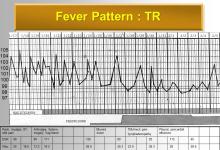Rheumatologists are Slow to Change DMARDs Save

The paradigm of rheumatoid arthritis (RA) therapy mandates early diagnosis and aggressive treatment. Yet a recent cohort study has shown that RA patients with moderate to high disease activity (MHDAS) were met with infrequent DMARD adjustments; with median time to DMARD adjustment being 5 months and median time to low disease activity (LDAS) was roughly 10 months.
Using a prospective RA cohort from the University of Pittsburg (RACER), researchers studied 538 RA patients (with 943.5 patient-years of follow-up) the found that patients in MHDAS had the following delays in DMARD adjustments:
- 90 days: 60% of MHDAS had their DMARDs changed by 90 days
- 154 days: Median time to adjust DMARDs in MHDAS patients
- 301 days: Median time to achieve LDAS in MHDAS patients
Longer delays in DMARD adjustment were more likely in the elderly, lower baseline disease activity scores, longer duration of RA, and those on biologics.
Longer times to achieve LDAS was more likely in African-Americans, those with higher baseline disease activity or those not adjusting DMARD therapy within 90 days.
Such findings are not new or novel as other registries and observational cohorts have also shown therapeutic hesitancy amongst rheumatologists. Harrison et al studied 9873 RA patients in the RADIUS database. Despite having moderate activity (> 5 TJC/SJC), the percentage with no DMARD change was 67% at 6 mos., 48% at 12 mos. and 38% at 18 mos. More than half of patients (54%) did not achieve Pain VAS 3/10 (https://buff.ly/2yx9A4d). Another prospective RA cohort study of 568 RA patients showed that 377 had severe disease and DMARD changes were variably and slowly made at 3 mos. (44%), 6 mos. (50%) or 12 mos. (68%). (https://buff.ly/2x8yt4Y)
The timeliness of DMARD adjustments in RA is a major unmet need for which many factors need to be addressed. These include the use of adjunctive therapies, treat-to-target metrics, access to care, frequency of patient evaluations and the current lack of time limits on therapeutic decision-making.










If you are a health practitioner, you may Login/Register to comment.
Due to the nature of these comment forums, only health practitioners are allowed to comment at this time.